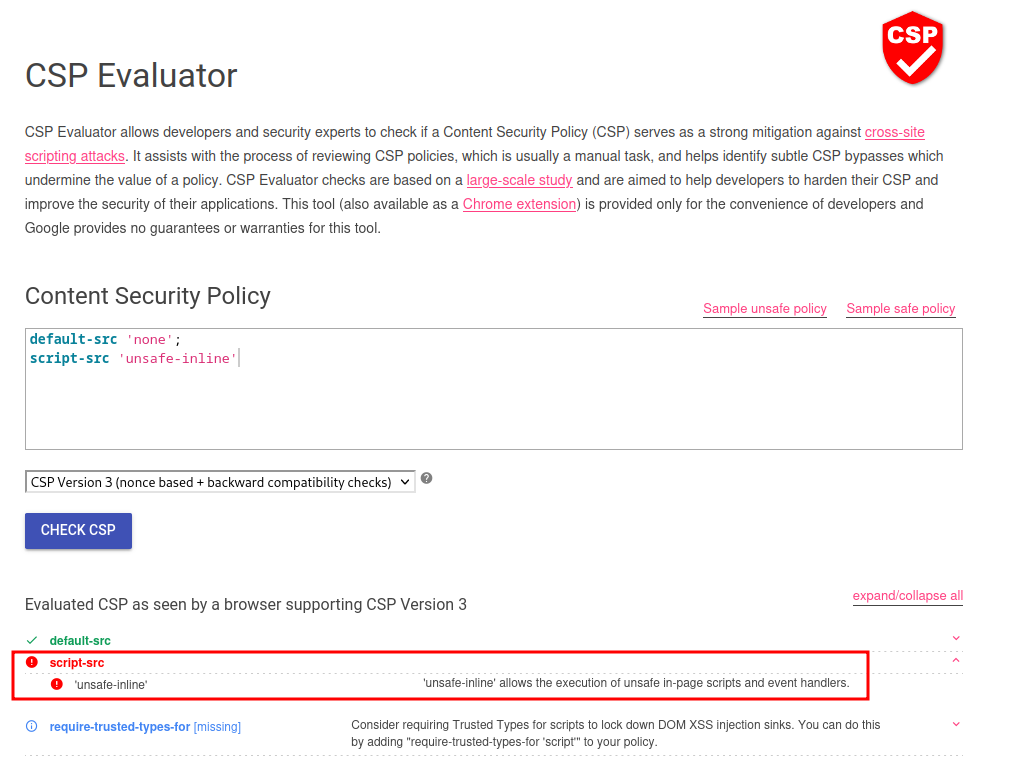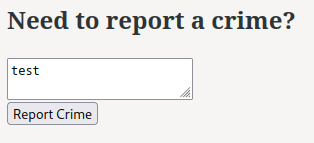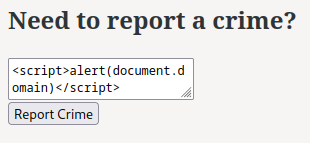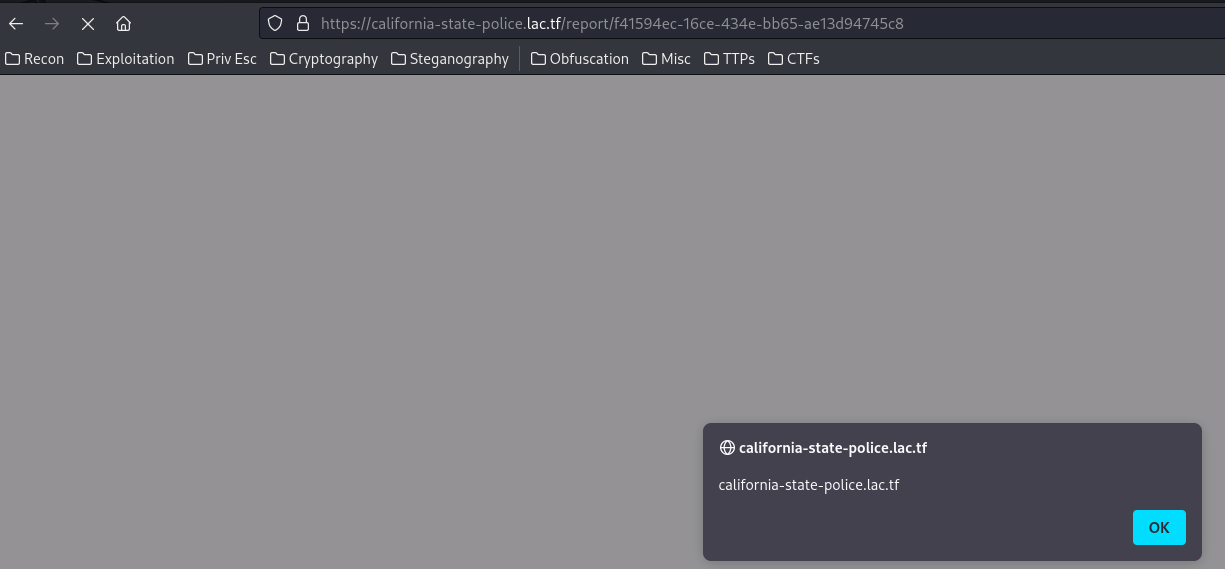california-state-police
Overview
-
Overall difficulty for me (From 1-10 stars): ★★★★★★★★★☆
-
40 solves / 480 points
Background
Author: aplet123
Stop! You're under arrest for making suggestive 3 letter acronyms!
california-state-police.lac.tf
Admin Bot (note: the adminpw cookie is HttpOnly and SameSite=Lax)

Enumeration
In this challenge, we can download a file:
┌[siunam♥earth]-(~/ctf/LA-CTF-2023/Web/california-state-police)-[2023.02.12|15:36:12(HKT)]
└> file index.js
index.js: JavaScript source, ASCII text
Let's look at that JavaScript source code file!
TL;DR: The source code is very same as another web challenge: metaverse.
In line 31 - 41, we see this:
app.get("/flag", (req, res) => {
res.status(400).send("you have to POST the flag this time >:)");
});
app.post("/flag", (req, res) => {
if (req.cookies.adminpw === adminpw) {
res.send(flag);
} else {
res.status(400).send("no hacking allowed");
}
});
In here, the flag is in /flag route, and we need to send a POST request and cookie adminpw.
In line 43 - 49, we see this:
app.use((req, res, next) => {
res.set(
"Content-Security-Policy",
"default-src 'none'; script-src 'unsafe-inline'"
);
next();
});
As you can see, the web application set a CSP (Content Security Policy).
Content Security Policy (CSP) is an added layer of security that helps to detect and mitigate certain types of attacks, including Cross-Site Scripting (XSS) and data injection attacks. These attacks are used for everything from data theft, to site defacement, to malware distribution.
The CSP has 2 directives: default-src and script-src.
default-src:
It's set to none, which means it disallows every domain.
script-src:
It's set to unsafe-inline, which means the web application doesn't block inline JavaScript code. That being said, we can inject JavaScript code without getting blocked by the CSP.

In line 51 - 74, we see this:
app.post("/report", (req, res) => {
res.type("text/plain");
const crime = req.body.crime;
if (typeof crime !== "string") {
res.status(400).send("no crime provided");
return;
}
if (crime.length > 2048) {
res.status(400).send("our servers aren't good enough to handle that");
return;
}
const id = uuid();
reports.set(id, crime);
cleanup.push([id, Date.now() + 1000 * 60 * 60 * 3]);
res.redirect("/report/" + id);
});
app.get("/report/:id", (req, res) => {
if (reports.has(req.params.id)) {
res.type("text/html").send(reports.get(req.params.id));
} else {
res.type("text/plain").status(400).send("report doesn't exist");
}
});
In /report route, we can provide a parameter called crime, it'll then check the data type is string and length is less then 2048 or not.
If all the checks passed, it'll redirect us to /report/<uuidv4>.
In /report/<uuidv4> route, it'll first check the UUID exist or not. If exist, display the report content.
Now, we can go to the home page:

In here, we can write a crime report to California State Police (Funny enough it's abbreviation is CSP).
Let's try to write a testing crime report:


As expected, when we submit the crime, it redirects us to /report/<uuidv4>, and display our submitted crime details.
Hmm… Let's try to inject JavaScript code:
<script>alert(document.domain)</script>


It works like a charm!
Now, how can we leverage this stored XSS (Cross-Site Scripting) to retreive admin bot's adminpw cookie?
In /report, there is no CSRF (Cross-Site Request Forgery) token, or other CSRF protection.
So, we can perform a CSRF attack via XSS!
Umm… How do we get the report UUID? How to post the admin bot's adminpw cookie when the attribute HttpOnly is set to true? How to bypass the CSP to retrieve the report UUID?
However, I still couldn't figure those out…